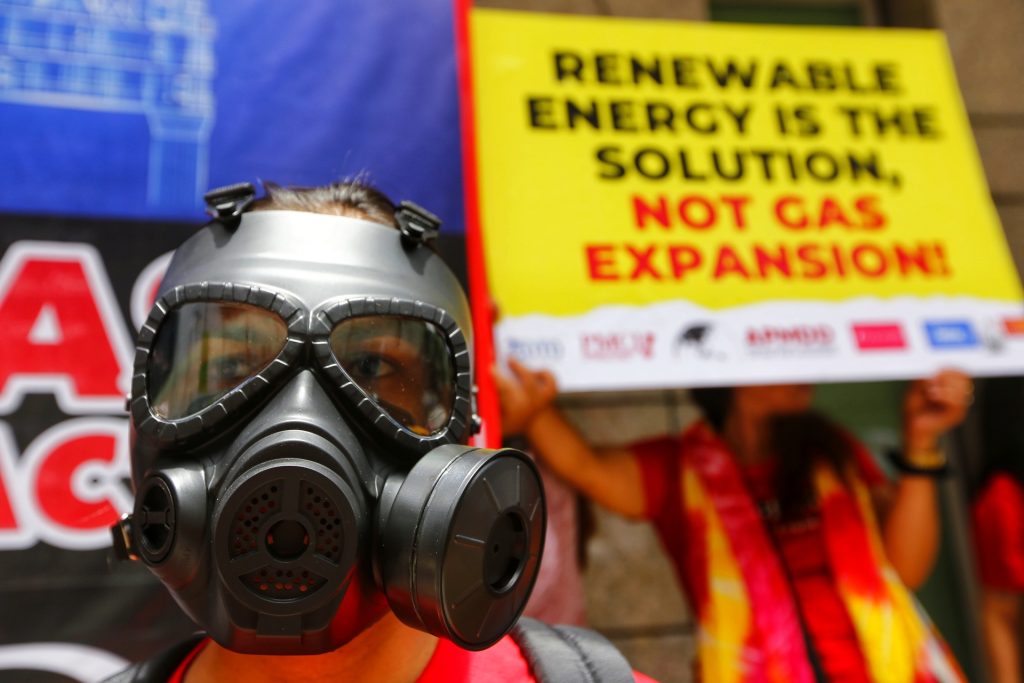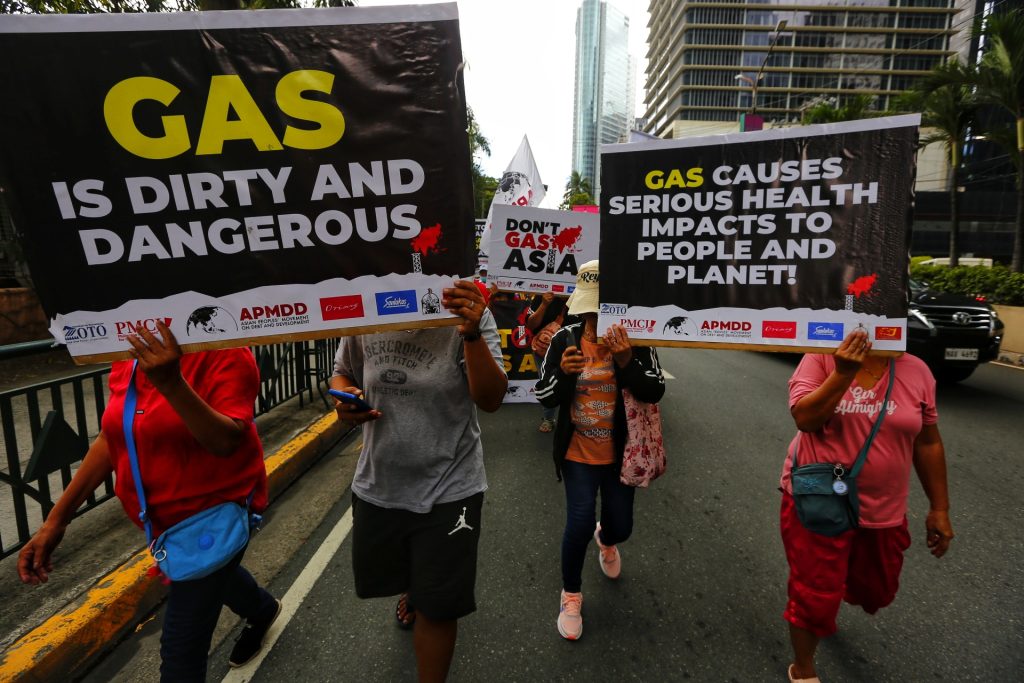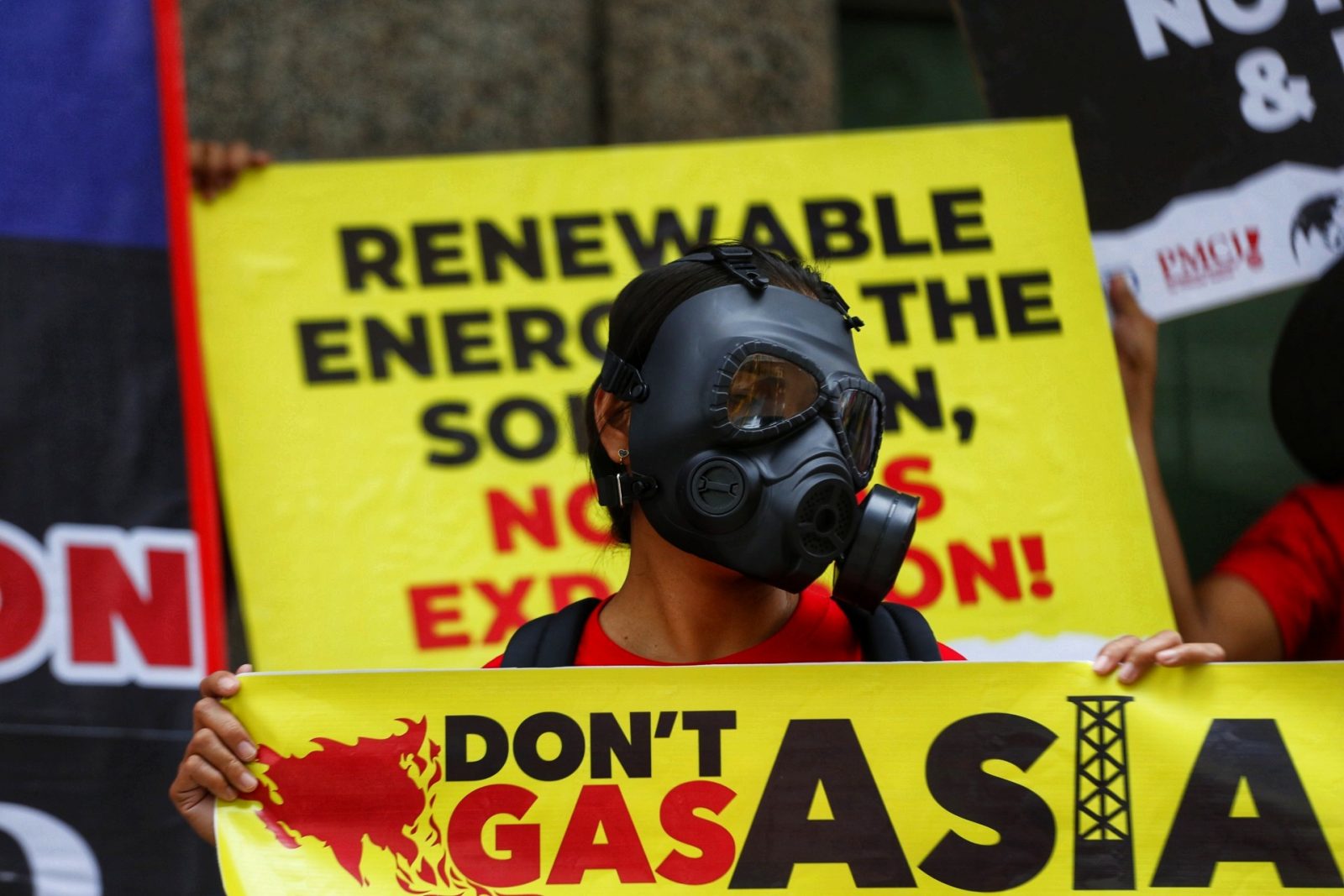Climate campaigners staged demonstrations in 13 cities across Asia on Thursday, May 4, to protest what they described as “intensifying gas buildout” in the region.
The groups, led by the Asian Peoples’ Movement on Debt and Development (APMDD), also called on governments in the region to accelerate the shift toward clean and renewable energy.
The protest rallies, which were held in Tokyo, Incheon, Mandaluyong, Jakarta, Chiang Mai, Hanoi, Dhaka, Delhi, Kolkata, Kathmandu, Lahore, Karachi and Colombo, were part of the Don’t Gas Asia campaign and coincided with the 56th Annual Meeting of the Asian Development Bank (ADB) Board of Governors in South Korea from May 2-5.
“Billions of dollars worth of projects are underway to expand liquefied natural gas terminals, power plants and pipelines in Asia. We do not need these projects,” said Lidy Nacpil, APMDD coordinator and convenor of the Asian Energy Network.
She said these projects “will create more problems, instead of solving the climate crisis and the energy crisis in the region because gas is as harmful as coal.”
The demonstrations called out the ADB for continuing to finance gas projects despite its commitment to support low-carbon transition in the Asia-Pacific region.
They also called out the government of Japan and Korea for being among the world’s leading gas and LNG investors.
Japan is one of the largest shareholders of the bank and holds the presidency of ADB while Korea hosts this year’s Board of Governors meeting.
“The message of people and communities is that gas expansion is toxic and unsustainable for Asia,” said Nacpil, adding that it will not stave off the impacts of climate change in the region.
“It would lock us in fossil fuel emissions for years, slow down the clean energy transition, and lock out any potential of countries to attain energy security and sustainable development,” she said.

Asia has more than US$350 billion of new gas infrastructure projects, triple the estimated investment for Europe, purportedly aimed at allowing economies including China, the Philippines, and Vietnam to avoid burning more coal.
Sreedhar Ramamurthi of the Delhi-based Environics Trust said fossil fuel companies have been pushing gas as a transition fuel for their own survival.
“Governments are building gas infrastructure to benefit these companies which will soon get stranded. Asia needs to be saved from this catastrophe as there is a concerted effort to even call this green,” said Ramamurthi.
Wanun Permpibul of Climate Watch Thailand called for a “rapid, just and equitable transition to 100 percent renewable energy” to tackle the energy crisis in Asia and to deliver on climate goals.
“Renewable Energy is the answer to ensuring universal access to clean and safe energy for women, communities and peoples of Asia, as well as addressing the climate crisis,” Permpibul said.

“We must also rapidly transition to renewables to keep global temperature rise to below 1.5 degrees Celsius and save us from climate catastrophe,” said Ian Rivera, national coordinator of the Philippine Movement for Climate Justice.
Studies show that the current and planned expansion of LNG would increase emissions in 2030 to dangerous levels.
Research also shows that the use of fossil gas for electricity generation, heating in buildings, and industry contributed almost as much as coal power to premature deaths in 96 cities around the world in 2020.
The largest component of fossil gas is methane, a potent greenhouse gas that is second only to carbon dioxide in terms of how much it contributes to global warming.







